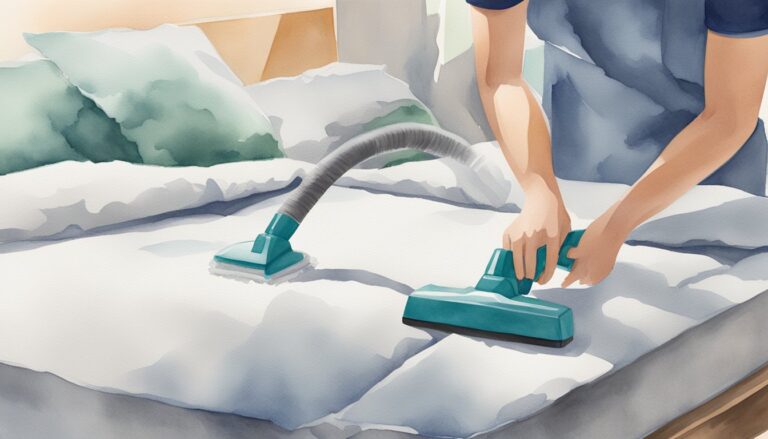Call us: (631) 270 9692
Keeping our night guards clean is essential for maintaining good oral health and ensuring the longevity of the device. We can use mouthwash mixed with water to soak our night guards for about 30 minutes. This method helps to disinfect and freshen the guard, making it ready for use.
For a deeper clean, baking soda and water are a great option. By making a paste and gently brushing it onto the guard, we can remove any plaque or buildup. This method is both effective and simple, requiring only common household items.
After cleaning, it’s important to let our night guards air dry thoroughly on a clean, dry surface. Storing them in a moist environment can lead to microbial growth, which we definitely want to avoid. Keeping them away from direct sunlight and heat prevents warping, ensuring they remain in good condition. Following these steps will keep our night guards clean and functioning properly.
Materials and Tools for Cleaning
To keep our night guards in top condition, using the right cleaning agents and tools is essential. We need safe and effective materials and tools that ensure a thorough clean without damaging the device.
Choosing the Right Cleaning Agents
Selecting safe cleaning agents is crucial. Over-the-counter mouthwash can help disinfect and freshen our night guards. It’s best to use non-alcoholic varieties to avoid damaging the material. Regular toothpaste and a soft toothbrush are other effective tools. Brushing gently removes food particles and plaque.
Baking soda is another safe choice. By mixing it with water to create a paste, we can scrub away germs and odors. Denture cleaning tablets can also be convenient. These tablets are designed to clean and disinfect without harsh chemicals. Hydrogen peroxide can be used for a deep clean. Soaking our night guard in a cup with a mixture of hydrogen peroxide and water helps to remove stubborn stains and disinfects effectively.
Necessary Tools for Night Guard Maintenance
Having the right tools makes cleaning our night guards easier. A soft toothbrush is a must-have. It helps us brush away debris and plaque. Using a dedicated, separate toothbrush prevents cross-contamination with our regular toothbrush. We need a clean bowl or cup for soaking the night guard. This allows us to use various cleaning solutions without making a mess.
Cleaning our night guard also means drying it properly. A clean, dry cloth or towel helps pat the guard dry without scratching it. Avoid paper towels as they may leave fibers behind. We can also let the guard air dry on a clean surface. Ensuring it is completely dry before storing prevents bacterial growth. Regular cleaning not only maintains our night guard but also ensures our oral health is protected.
Step-By-Step Cleaning Process
Cleaning a night guard regularly ensures its effectiveness and longevity. Consistent routines and proper storage prevent the buildup of bacteria and other harmful substances.
Daily Cleaning Routine
We start by rinsing the night guard with lukewarm water. It’s crucial to avoid using hot water as it can warp the material. After rinsing, we use a soft toothbrush and non-abrasive toothpaste to gently brush the night guard. This helps remove plaque and debris.
For additional freshness, we can soak the night guard in a mouthwash solution. Simply pour a capful of mouthwash into a clean cup, add enough water to cover the guard, and let it soak for 30 minutes. After soaking, rinse the night guard thoroughly with water to remove any residue.
Weekly Deep-Clean Procedure
For a deeper clean, we use a mixture of white vinegar and water. We soak the night guard in one part distilled white vinegar to three parts water for at least 30 minutes. This helps remove calcium buildup and other stubborn residues.
After the vinegar soak, we rinse the night guard and the bowl with water. Next, we soak the night guard in a hydrogen peroxide solution. This can be made from equal parts hydrogen peroxide and water. Soak the guard for another 30 minutes to kill any remaining bacteria. Finally, we rinse the night guard once more with water.
Drying and Storage Techniques
After cleaning, it’s important to let the night guard air dry completely. We place the guard on a clean surface and allow it to dry in a well-ventilated area. Avoid using direct heat or sunlight, as these can damage the guard.
Once dry, we store the night guard in a ventilated storage case to prevent bacterial growth. It’s best to keep the case in a cool, dry place. Regularly cleaning the storage case with soap and water ensures it remains sanitary. These steps help maintain the hygiene and durability of our night guard.
Maintaining Night Guard Longevity

To ensure our night guards last as long as possible, we need to be careful with how we clean and store them. Proper maintenance practices can keep them effective and save us the trouble and expense of frequent replacements.
Avoiding Common Cleaning Mistakes
One major mistake we often make is using hot water to clean our night guards. Heat can warp the material, making the guard less effective. Stick to using cold or lukewarm water instead.
We should also avoid harsh cleaners like bleach or alcohol. These can degrade the material over time. Instead, mild soap and a soft toothbrush are effective and safe options. If we prefer a deeper clean, soaking our night guard in a mixture of water and mouthwash or vinegar for about 30 minutes can help.
It’s important not to dry night guards under direct sunlight or near heat sources. This, too, can cause warping. Instead, we should air dry them completely on a clean, dry surface away from moisture to prevent microbial growth. Keeping our cleaning routine simple and gentle can extend the lifespan of our night guards.
When to Replace Your Night Guard
Even with the best care, night guards eventually need to be replaced. Signs that it’s time for a new one include visible wear and tear, persistent odor, or discoloration that cleaning doesn’t remove.
It’s also essential to know that most insurance plans cover replacements if deemed necessary by a dentist. We should check with our insurance provider to understand reimbursement options for new night guards. Additionally, if we buy replacements in bulk or look for sales, we may find discounts that make the process more affordable.
Regular dental check-ups can help determine if our night guard is still effective. By staying attentive to these signs, we can ensure our night guards are always providing the best protection.





